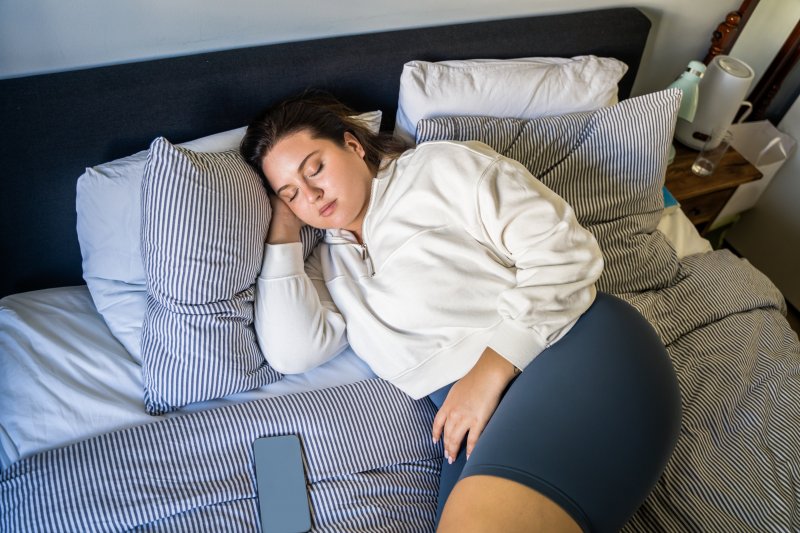Is Sleep Apnea Becoming More Common?
October 17, 2024

Sleep apnea is a sleep disorder in which breathing repeatedly stops and starts back up throughout the night. This can be extremely dangerous and has been on the rise in the United State for the last few years. One reason why this is the case is due to the increasing rate of obesity in the country. Sleep apnea increases the risk of numerous health issues. Continue reading to learn about the risk factors of sleep apnea and some of the treatment options available to reduce its effects.
What Are the Risk Factors for Sleep Apnea?
Here are some of the many factors that increase the risk of developing sleep apnea:
• Obesity: If you have a lot of excess weight, your risk of sleep apnea increases greatly. Fat deposits around the upper airway can obstruct your breathing.
• Narrowed Airway: Some people naturally have a narrow throat. This means a higher probability of sleep apnea.
• Family History: If your parents or other close family members have sleep apnea, you may be more likely to develop it yourself.
• Gender: Men are two to three times more likely to have sleep apnea than women.
• Smoking: Smokers are three times more likely to have obstructive sleep apnea than people who never smoked. This is because smoking increases the amount of inflammation and fluid retention in the upper airway.
• Medical Conditions: Medical conditions, like Parkinson’s disease, high blood pressure, congestive heart failure, and type 2 diabetes can all contribute to sleep apnea.
• Alcohol Use: Alcohol, sedatives, and tranquilizers relax the muscles of the throat, worsening sleep apnea.
Treatment Options for Sleep Apnea
There are various ways to combat the effects of sleep apnea. Here are some of the effective options available:
• Lifestyle Changes: If you have mild sleep apnea, you may be able to address it with some healthy lifestyle changes. Reaching a healthy weight, limiting your alcohol intake, sleeping on your side, and quitting smoking can all help you achieve more quality sleep.
• CPAP Therapy: CPAP stands for “continuous positive airway pressure.” This treatment involves wearing a mask over your nose and/or mouth. This mask is hooked up to a machine to constantly deliver a flow of air into your airway. This keeps the airway open as you sleep. While this is a great option for those with severe sleep apnea, many people find this treatment uncomfortable and inconvenient, so they are less likely to comply with their treatment.
• Oral Appliances: If you have mild to moderate sleep apnea, or you haven’t found success with CPAP therapy, oral appliances make an excellent alternative. They are custom-made for you and worn in your mouth at night. They work by keeping your jaw in a forward position, keeping the airway open.
If you are experiencing symptoms of sleep apnea, this is something to bring up to your dentist. This way, you can work towards a sounder sleep.
About the Author
Dr. Philip A. Lisk is an experienced dentist who has been working in the field for well over two decades. He earned his dental doctorate from the University of North Carolina School of Dentistry in Chapel Hill. Since then, he has undergone 90+ hours of continuing education in obstructive sleep apnea and oral appliance therapy. He is also a proud member of the American Academy of Dental Sleep Medicine. To learn more about sleep apnea or to schedule an appointment at his office in North Raleigh, visit his website or call (919) 870-6892.
No Comments
No comments yet.
RSS feed for comments on this post.
Sorry, the comment form is closed at this time.

